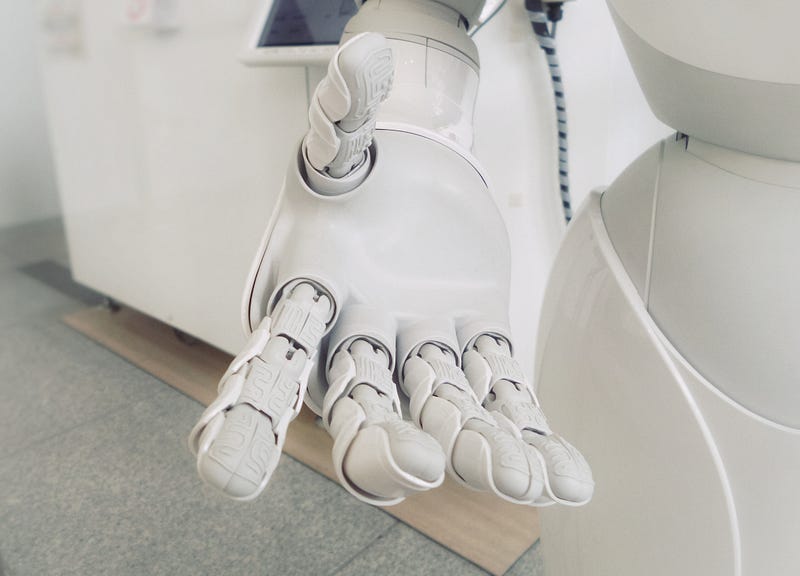Surpassing Human Intelligence: The Future of Artificial Intelligence
Written on
Introduction
Have you ever pondered whether artificial intelligence (AI) could eventually match or even outstrip human intelligence? This question has sparked extensive debate among scientists and researchers for many years, without a definitive resolution. While some experts assert that AI will never replicate or exceed human cognitive abilities, others argue that it is only a matter of time before AI reaches that potential. What are your thoughts? Can AI truly outpace human intelligence, or is that a uniquely human trait?
What Is Artificial Intelligence?
You might be familiar with the term "artificial intelligence," but what does it really entail? AI refers to the capability of a computer system to learn and operate autonomously, making decisions based on data inputs.
In some instances, AI can mimic human activities, such as recognizing faces or processing speech. However, it can also generate new functionalities, like suggesting books or films tailored to an individual's tastes. While concerns exist regarding the potential for AI to surpass human intelligence, there’s no immediate cause for alarm—at least for now!
What Are Some Features of Artificial Intelligence?
To address the question of AI's capabilities, we need to grasp its essence. AI is a subset of computer science focused on developing intelligent systems. These systems can simulate human intelligence and execute tasks typically requiring human input, such as comprehending natural language and identifying objects in images.
Key attributes that enhance AI's efficacy include its ability to learn and adapt, as well as its proficiency in processing vast amounts of data. Although AI is still in its nascent stages, numerous applications remain untapped. Nonetheless, the potential for it to surpass human intelligence certainly exists.
What Are the Different Types of Artificial Intelligence?
There are various forms of AI, each with distinct advantages and limitations.
Reactive AI is akin to what you might see in science fiction—machines capable of independent thought and action. In contrast, scripted AI, commonly found in video games, operates on pre-programmed instructions, making it less advanced but significantly more reliable.
Then there's Artificial General Intelligence (AGI), often deemed the ultimate goal of AI development. This type of AI would possess the ability to think and learn like a human. Some experts believe we are on the brink of achieving AGI, while others contend that we still have a long way to go.
Thus, which type of AI reigns supreme? The answer largely depends on the specific task at hand.

How Has Artificial Intelligence Developed Over the Years?
You might be curious about the evolution of artificial intelligence over the decades. Initially, during the 1950s, pioneers in AI were attempting to create machines that could emulate human thought processes. However, progress was slow, with significant research focused on understanding the human brain.
Now, in the 21st century, we have machines capable of independent learning and evolution. They can detect patterns and correlations that would elude human perception. In fact, some authorities argue that AI has already reached or even surpassed human cognitive capabilities.
What Are Some Obstacles Artificial Intelligence Currently Faces?
Despite its impressive advancements, AI still encounters significant hurdles before it can truly rival human intelligence. Current challenges include the ability to comprehend and adapt to new information, manage uncertainty, and replicate human emotions and actions.
However, AI continues to make substantial strides, and there is little doubt that it will eventually surmount these challenges.
How Could Artificial Intelligence Improve in the Future?
Imagine a future where AI matches or even exceeds human intelligence. Given the rapid pace of technological innovation, this scenario seems increasingly plausible.
What implications would this have for humanity? For starters, machines would be capable of performing a wide range of tasks we currently undertake, including thinking, learning, and making decisions. This could lead to enhanced efficiency and productivity in various sectors.
However, there are also concerns that AI could pose risks to humanity if it becomes more intelligent than us. Therefore, it is crucial that we continue to advance this technology responsibly, maximizing its advantages while mitigating potential threats.
Conclusion
At present, artificial intelligence is still trailing behind human intelligence. However, with the swift pace of technological progress, it is not out of the realm of possibility that AI could eventually surpass human intellect.
This remains a contentious issue, with many believing that AI will never fully replicate human cognitive abilities. Yet, as technology continues to advance exponentially, the prospect of AI achieving—or even exceeding—human intelligence is becoming increasingly feasible.
Let us know your thoughts in the comments below!
Chapter 2: The Path Forward
This first video explores the six stages of AI development and discusses where we currently stand in relation to human intelligence.
The second video delves into predictions about when artificial intelligence might outstrip human intelligence.